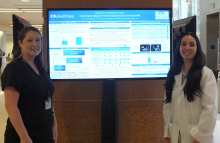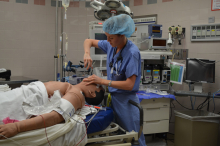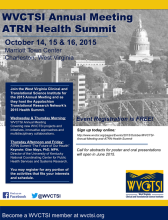Check Your Eligibility for NIH Continuous Submission
Faculty who serve on an NIH study section or advisory board may have continuous submission privileges meaning they can submit proposals after the standard deadlines and still have their proposal reviewed in the current funding cycle.
Faculty can review the continuous submission policies and check their eligibility at the links below:
General Continuous Submission Link:
http://grants.nih.gov/grants/peer/continuous_submission.htm
NIH Finalizes Changes to Grant Application Instructions to Address Reproducibility of Research Results
Recent attention on the inability to reproduce scientific research findings reported in peer-reviewed journals has led the leadership of NIH to review its application requirements. This review has led to a proposed set of changes to the application instructions that, upon approval by the White House Office of Management and Budget, will take effect for applications submitted on or after January 25, 2016.
The new instructions will focus on four areas deemed important for enhancing rigor and transparency:
Neuroscience Expo Will Feature Interactive Learning
2nd Annual Department of Radiology Quality & Safety Forum
On June 3, 2015, the 2nd Annual Department of Radiology Quality & Safety Forum was held in the Pavilion A Lobby. The Forum featured seven Quality Improvement poster projects from the Department of Radiology. With the help of UKHC OVIHD, all of the posters used the 8-step problem solving process.
The Office of Dr. Bernard Boulanger provided snacks and refreshments for attendees.
UK Anesthesiologist Visits “the Other UK” on Prestigious Endowed-Lectureship Tour
Annual ATRN Summit Now Accepting Registrations for October 15-16 Meeting
The Appalachian Translational Research Network (ATRN) is committed to addressing the significant health challenges and disparities specific to Appalachia by enhancing research collaborations to speed the translation of scientific discoveries to health improvements for this region. Initial members consist of University of Kentucky and its partner, Marshall University, The Ohio State University, University of Cincinnati, Ohio University, and West Virginia University.
NIH Provides General Reminders for Public Access Policy
Clarifying Publication Reporting Instructions for Research Performance Progress Reports (RPPR) and Renewal Applications
Background
Cardiovascular Research Day Scheduled for October 2, 2015
The 18th Annual Gill Heart Institute Cardiovascular Research Day is scheduled for October 2, 2015. The event will take place at the Lexington Convention Center. This year, the event is thrilled to host Gary Gibbons, MD as Keynote Speaker. Dr. Gibbons is Director of the National Heart, Lung and Blood Institute at the National Institute of Health. Our Featured Speakers will include Peter Tontonoz, MD, PhD from UCLA and Mike Synder, PhD from Stanford University.
Mueller from Smyth Lab Publishes Review Article
Mueller, P.; Ye, S.; Morris, A.; Smyth, S.S. Lysophospholipid mediators in the vasculature. Experimental cell research 2015 [PubMed Link] | [Full Text]
Introduction





